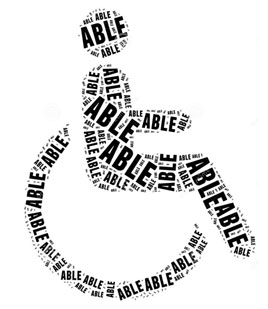In February 2019, Dan was privileged enough to contribute a video course for Lawline.com about “An In-Depth Look at Trusts: Answers to Your Most Commonly Asked Questions” The video is about how Trusts are now the primary way to manage the complexities of government benefits, creditor issues, taxes, and beneficiary protections. Trusts allow us to preserve family assets and do so without court oversight. But what kind of trusts are appropriate in which circumstances? How do we properly title trust accounts and beneficiaries designation forms? And how do we maximize tax deferral, creditor protection, and Medicaid-using trusts? This program, presented by estate planning attorney Daniel Timins, will answer all these questions and more. Additional topics to be discussed include testamentary
Category: Blog Post

What You Can Do Now to Help Your Parents Apply for Medicaid
You may have heard it before: Someone’s elderly parent or grandparent breaks their hip or had a stroke or any one of the thousands of things that can happen to us when we start drinking Ensure for lunch, and now the family needs to apply for Medicaid for that person’s long term care needs. But the family members are having all types of trouble finding the necessary documents that Medicaid requires, such as marriage certificates, identification, proof of Social Security, tax returns, copies of all financial statements, the list is pretty lengthy. So, what can your parents do now to help you apply for Medicaid for them at some point in the future? 1. Draft a Power of Attorney: Having a

How to Secretly (and Correctly) Purchase Real Estate with Trusts and LLCs
Privacy is an almost-forgotten concept in our world. Perhaps we are trying to avoid being found by a greedy family member or being served in a vexatious lawsuit by a degenerate loser. Maybe you are a celebrity or media personality and don’t want your fans – or detractors – waiting outside your building or driveway (I love all of my adoring fans, but I don’t want them knocking on my front door before I start binging Punky Brewster reruns on Netflix). Maybe you are a foreign diplomat trying to secretly create a safe haven for your money and yourself in our wonderful country in case you piss off the head of your political party. But real estate records are public

When Should I NOT Act as Mom’s Executor?
When your mom passes away with a valid Will and property being transferred by that Will, the Will is submitted to the Court who appoints an estate representative to wrap up her final affairs. This person or company – almost always named in the Will – is known as the Executor, and has the ability to do everything that your mom could do during her life: Collect her assets, pay creditors, review all of mom’s financial records and statements, file income tax returns, order her medical records, distribute her property as mom’s Will states, and even clean out mom’s closet (which she likely neglected to do before she died since, you know, she’s now dead). We say an Executor “steps

The Battle of Winterfell: An Estate Attorney’s Payday
After turning down family plans for 70 Sunday nights, waiting more than 70 weeks for a new episode, and using nearly 70% of your brain’s computing power remembering all of the interpersonal relations in Westeros (could Hot Pie the baker actually be the Prince That Was Promised?), Game Of Thrones is almost over. But we are told the best is yet to come next Sunday when the Battle Royale Extraordinaire between the living and the Army of the Dead face off in Winterfell. And so, with only a few episodes left, facing what will likely be the greatest CGI human slaughter of all time, I am left wondering ONLY one thing: Why wasn’t anyone in Winterfell drafting their Will? If

Unsigned Wills Are Meaningless (and Photocopies are Not Much Better)
I like to remind people that the laws regarding modern U.S. Wills, not only predate the founding of the U.S., but actually predate European discovery of the Western Hemisphere. In Olde England in the city of York having a signed, witnessed piece of paper instructing how you wanted your property to be distributed after your death was often the only way to ensure your desires were fulfilled. Original paper mattered back then – there were no other recording devices or accounts with beneficiary designations – and witnesses would later attest to the fact they had seen you sign said paper instead of someone else. And original, signed paper still matters for several legal documents today, including your Will. The issue

Your Wills & Trusts Should Require Your Children to Have Prenups
After you die there are way too many evil forces that can take a swipe at gifts to your children. Credit card companies may receive unpaid debts from your transfers to your children; the street level dope dealer may have his next good run with your child as his primary client; even the government may take much of the funds if your child becomes disabled. But for some reason, nothing annoys a parent more than knowing their soon-to-be-ex-son-in-law Chad is going to get a hold of your bequest to your daughter Becky (and now your son Bryce too, if that’s how he rolls, since greed has no sexual preference). All Wills and Trusts should have substance abuse provisions, spendthrift provisions

Disabled with Cash: When to Use ABLE Accounts
In 2014 the federal government passed legislation allowing the creation of “Achieving a Better Life Experience” [“ABLE”] accounts. Much like Supplemental Needs Trusts, these accounts are permitted to hold funds for disabled individuals that would otherwise leave them with too much financial resources to maintain Medicaid and Supplemental Security Income [“SSI”]. The main benefits of ABLE accounts are that they are self-created and inexpensive: No legal fees, no on-going trustee commissions. The disabled individual, his family members or his Power of Attorney may create ABLE accounts, as may a Trust created by another person. And while ABLE accounts can pay for health-related expenses, any money that is used for food and shelter will not result in SSI being reduced by

Codicils and Trust Amendments May Burn Your Estate
Hiring an attorney has been obnoxiously expensive since the first time a guy’s donkey backing into another guy’s mud version of today’s tiny houses: You tend to want a person or document that best insures you are going to get things done your way, but good results cost a lot of money. So, it is not surprising that people prefer to change their Wills using Codicils and Trust Amendments instead of redrafting the entire original document. I have concluded this is often a mistake and now believe clients should spring for the costs of redrafting their entire document. Codicils are quick changes to existing Wills, and only modify the portions they are intended to change (and maintain the remaining contents
February 5, 2019 at 6 PM NYPL SIBL
 Web Link: Long-term Care and How To Fund It
Web Link: Long-term Care and How To Fund It Downloadable PDF:Long-term Care and How To Fund It
Downloadable PDF:Long-term Care and How To Fund It- Download Our PowerPoint Presentation: Long Term Care and How to Fund It










